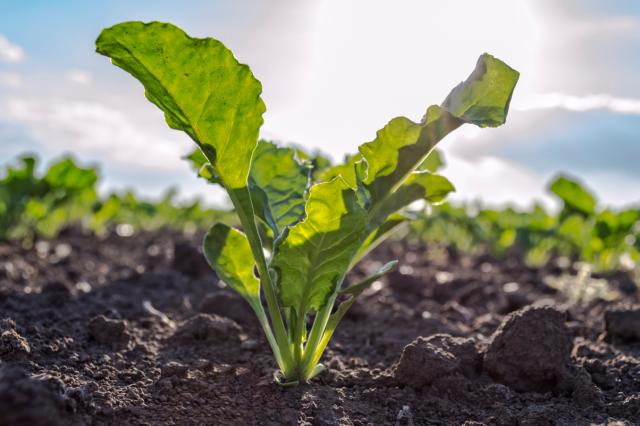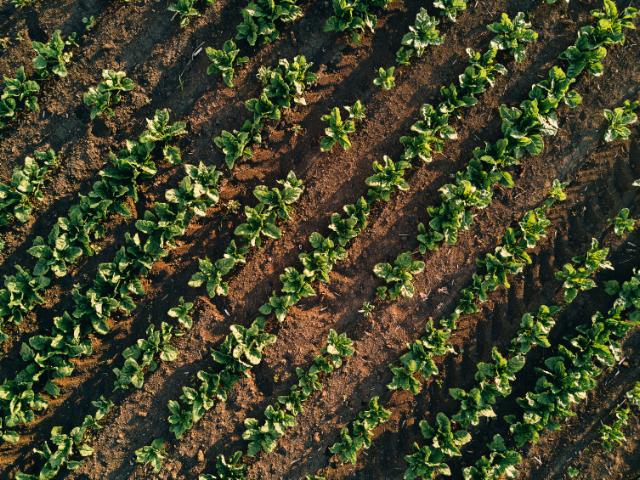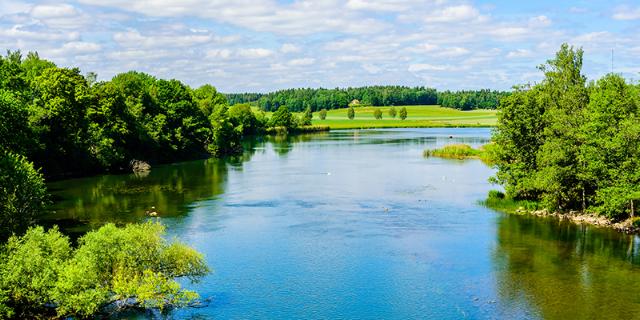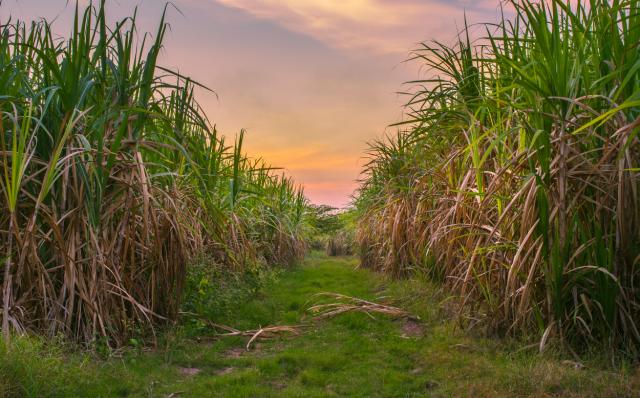Sustainable cultivation and production
Sugar beet is an environmentally friendly crop by nature. During sugar extraction, the water in the beet is recycled and what is left of the sugar beet as for example beet pulp and molasses are turned into valuable animal feed or used for Biogas production. Our Fairtrade-certified cane sugar products come from South America and Africa.

Nutrition from the soil, energy from the sun
With its long roots, which can extend as far as two metres into the ground, sugar beet is efficient at utilising the nutrients found in the soil. This reduces the need for fertilisation. Sugar beet haulm can be compared to a solar collector that converts the sun's energy into sugar.
Sugar beet is also an effective way to maintain agricultural land. The beets are grown using crop rotation and continue to grow in the autumn after other crops have been harvested. Growing sugar beet in a field that is otherwise used for cereals is a natural way of reducing the amount of weeds and preventing plant diseases.

The entire beet will be utilised
A sugar beet contains about 16% sugar, but like many other crops it also has a high water content, about 75%. A lot of water is used during sugar extraction, but luckily we can actually use the water that is present in the sugar beet. By reusing the water in the sugar up to 20 times, our production is 90% self-sufficient in water.
When the sugar has been extracted from the sugar beet, we get a fibre-rich beet mass which, after drying and pressing, is used in a variety of animal feeds. Molasses is the viscous syrup that remains in the final stage of production when the pure sugar crystals are formed. Molasses are used as a tasty and energy-rich feed for cows and horses.
More about our sustainability work can be found at www.nordzucker.com/en/nordzucker-together-sustainable

Eco-label and Fairtrade label
Contrary to what many believe, there is no difference between the sugar contained in sugar beet and sugar cane and the two crops give an identical end product. (So-called raw sugar, on the other hand, is characterised by the sugar crystals having a reserve of sugar juice after production, which gives the raw sugar its brown colour).
What distinguishes organic sugar products from our regular products is the cultivation. With organic farming, the soil gets its nutrition from natural fertilizers, and all weed control is done manually.
From autumn 2020, Dansukkers organic products are made from locally grown sugar beet. The product range includes ECO Granulated Sugar, ECO Icing sugar and ECO Soft Brown Sugar, all three products are made from sugar beets grown on Danish and Swedish fields. The organic range also includes ECO Jamsugar and ECO Light Syrup, which are made from European organic sugar beet instead of South American sugar cane. Dansukker still has organic cane sugar in its range, it is produced from sugar cane from South America.
The Dansukker range also includes Fairtrade-labelled sugar products from crops in Paraguay and Mauritius. When you buy Fairtrade products, you contribute to better working conditions and safer social conditions for manufacturers and employees in the poorer parts of the world.
Read more about Fairtrade-labelled sugar production
